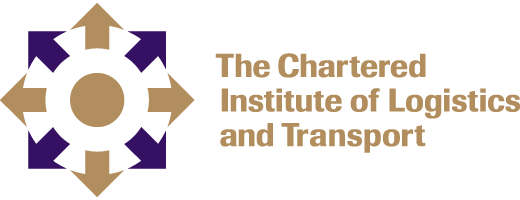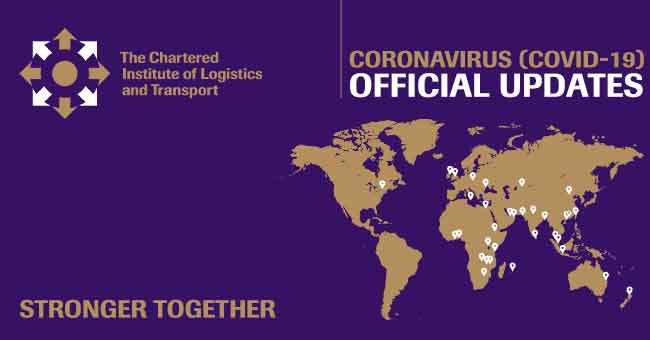As Brendan Murray of Bloomberg puts it, ‘COVID-19 is about to put the global trading system through its most dramatic stress-test since World War II, with supply lines for essential food and medical goods entering a critical phase as the pandemic peaks in the U.S. and Europe.’
Writing on the Bloomberg website on April 16 2020, Murray highlighted the urgent need to safeguard ‘the world’s food chain, and the people who process and transport it. From meatpackers to vegetable farms, and trucks to merchant ships, workers and infrastructure are showing signs of fatigue. In short, the backbone of global trade needs reinforcement before anyone can think of moving on from crisis-mode to recovery.’
Shipping
For Murray, one of the major problem areas is shipping. Responsible for an estimate 80% of internationally traded goods, shipping is a major driver of the global trading system. However, many economies have yet to classify seafarers as essential workers, resulting in crews being stranded on board ships, whilst colleagues supposed to relieve them are unable to pass through ports and airports. As Guy Platten Secretary-General of the International Chamber of Shipping (ICS) said in a recent interview, ‘Once we get to the middle of May, this is going to be a real crisis unless we start taking action now’.
As a result the ICS is pushing for seafarers to be classified as essential workers, something supported by Scott Bergeron, Director of Business Development and Strategy at Oldendorff Carriers GmbH & Co. ‘The equivalent is like a doctor or nurse being told, “You can’t go home at the end of your shift, you’re at the hospital until the crisis is over”‘.
Barriers
The disruption of marine logistics has serious implications for all sectors of the economy, including medical supplies. ‘Say a large container port is struggling with Covid-related issues,’ said William Davis at maritime logistics firm T Parker Host in Norfolk, Virginia. ‘Well, guess what? Critical medical supplies coming off container ships, and critical food supplies, are disrupted’.
Like marine traffic, road haulage is also experiencing major restrictions. Governmental lockdown policies are preventing the easy flow of goods across borders and even inside countries. ‘We have had a lot of governors and mayors putting up barriers to the safe and efficient movement of goods,’ says Sean McNally, a spokesman for the American Trucking Associations. ‘If officials want to have store shelves re-stocked, and hospitals supplied, they need to make accommodations for trucks and truck drivers.’
Globalisation
There are two schools of thought regarding the effects of Covid-19 on a globalised world economy. For Peter Navarro, Director of the Office of Trade and Manufacturing Policy and a key advisor to President Trump, Covid-19 as exposed the flaw in globalisation. America is unable to get the supplies it needs, and for Navarro this is because of international supply chains, ‘If we made it here, we wouldn’t be faced with this. That was the original sin.’
This is a not a view held elsewhere however, with leaders such as Sabine Weyand, the European Commission’s director-general for trade, who said ‘Self-sufficiency is not an option for any country,’ backing up her assertion with an example of the manufacture of ventilators, which can contain as many as 900 pieces sourced from all over the world.
There is also disagreement with Navarro from closer to home. An article published by the Peterson Institute for International Economics in fact argued the polar opposite. That globalised supply chains was the only way to successfully meet the demand for medical supplies in the US. ‘The shortage of gloves, gowns, face masks and other personal protective medical gear to fight the COVID-19 pandemic illustrates what everyone should know: The United States depends on global (and hemispheric) supply chains.
The article cites the example of HanesBrands who are shifting ‘production from t-shirts and underwear to cotton masks in factories in El Salvador, the Dominican Republic and Honduras. This production, under US federal contract, is expected to deliver 5 million or more protective masks weekly.’
It goes on to suggest that building a compact to encourage global production and distribution of medical supplies could be forged based on examples from amongst other things the past record on vaccines. ‘A public-private partnership involving large manufacturers, international transportation and logistics firms, developing- and advanced-country governments, and international financial institutions could help.’
APEC
Writing in the APEC bulletin of 21st April 2020, Dr Denis Hew also strongly argued that globalisation is a vital tool to fight the Covid-19 pandemic. ‘Saving lives is, of course, the most pressing priority right now. Finding innovative economic solutions to this dilemma cannot wait until the lockdowns are lifted and the health crisis abates. The private sector has called upon APEC to do more.’
‘In late March, the APEC Business Advisory Council, which represents the Asia-Pacific’s business community, wrote to Prime Minister Muhyiddin Yassin of Malaysia, who is the chair of APEC in 2020, to urge collaboration across the region to combat the health impacts and mitigate the economic consequences of the pandemic. They called for multilateral action to help contain the spread of COVID-19, though information exchange, aligning health systems and enabling travel for essential health workers to where they are needed.’
Dr Hew also speculated on the future benefits that could be gained if ‘economies could commit to refrain from implementing trade-restrictive measures on these products even after the pandemic abates and maintain open supply lines.’
WCO and WHO co-operation
The World Customs Organisation (WCO) has also formed the opinion that co-operation is vital to successfully fighting the Covid-19 Pandemic. ‘To respond to the unprecedented demand in medical supplies amid the current global Covid-19 pandemic around the world, and in order to help countries speed up the cross-border movement of these critical products, the WCO and the World Health Organization (WHO) joined hands to strengthen their cooperation by establishing a coordinated approach in their response to the pandemic.’
As a result of this joint effort of the two organizations, the HS Classification Reference for COVID-19 Medical Supplies was updated, in a more structured and user-friendly format, to reflect more of the products that would be required in the professional opinion and experience of the WHO in public health.
Cure and Recovery
As the OECD report on Covid-19 and trade issues puts it, ‘with Covid-19 hitting countries at different times and rates, access to global demand via open markets and continued trade will be important for supporting and sustaining economic recovery.’
‘There is thus a need to consider how to keep trade flowing in the current crisis and to ensure it can help underpin global recovery. This means both actions and decisions today and with an eye to the future.’
This is an example of global business analysis which we are sharing as part of our global best practice resource to help you think about and determine appropriate responses locally.

